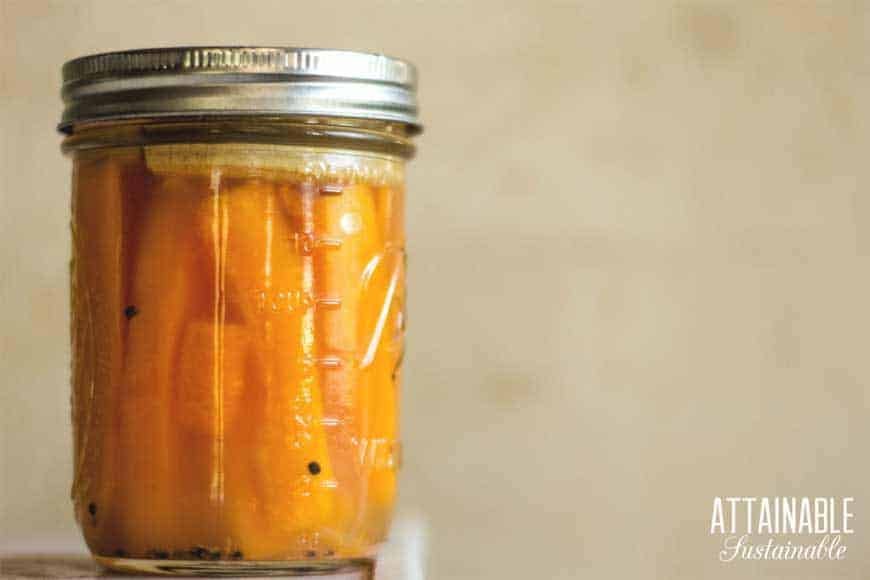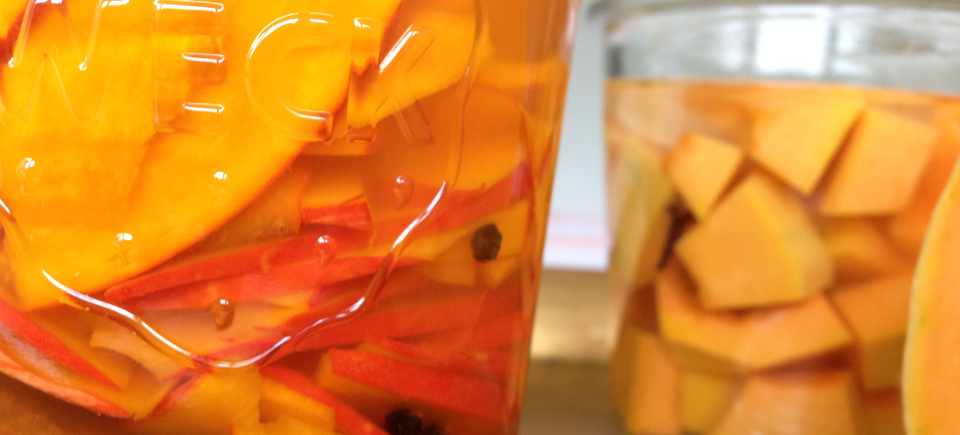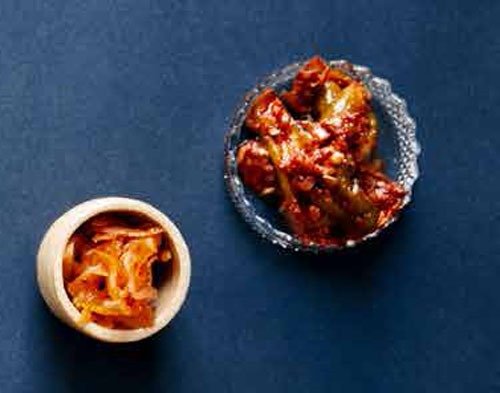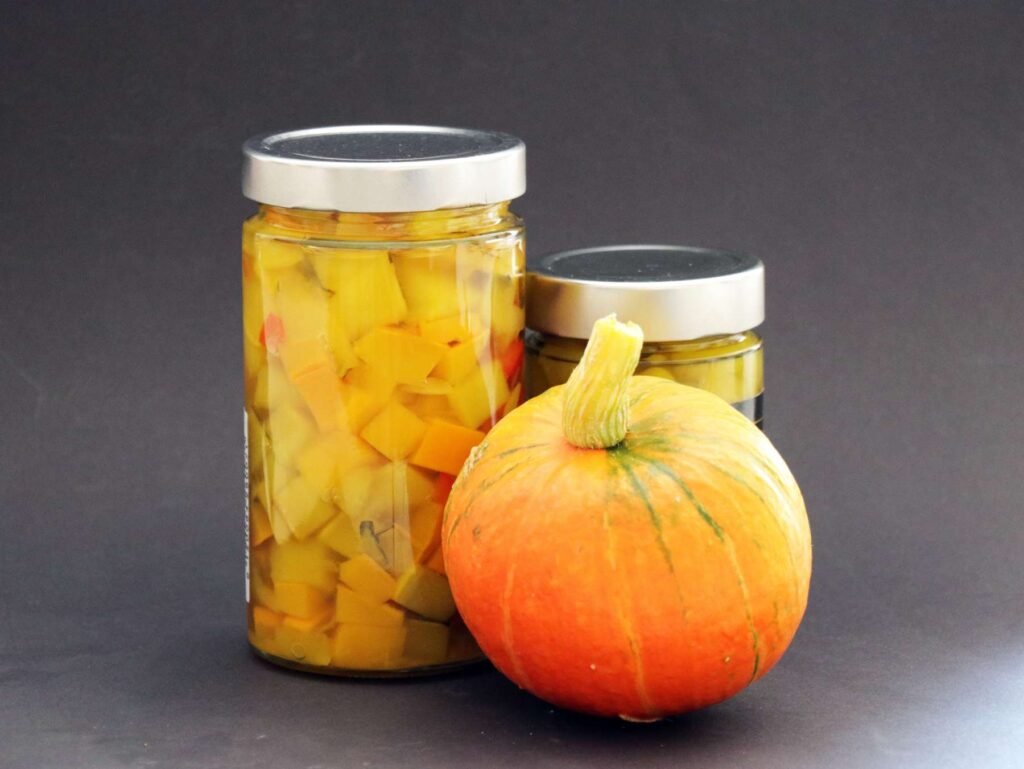Fermented Pumpkin Is Good For Your Gut & Boosts Your Immune System
Table of Contents
Have you ever tried fermented pumpkin or squash?
Now is the time for fermented pumpkin. Fall time is pumpkin time, and Halloween is just around the corner. Orange, yellow, green, and in different shapes and sizes, they delight not only our eyes but also our taste buds.

Pumpkins are among the oldest cultivated plants in the world. You can process them with or without the skin, depending on the variety. They provide us not only with the pulp but also with the pumpkin seeds.
You can ferment different types of pumpkin and squash with different spices and herbs. The result is a tasty, probiotic, long-life ferment full of nutrients in which the lactic acid bacteria thrive, enrich, lower the pH and provide the characteristic acidic taste. They also have positive effects on our intestines.
Pumpkins consist of 90% water, have many ingredients and few calories, and are suitable for weight loss. The dietary fiber it contains fills you up and promotes digestion. Minerals such as potassium regulate the fluid balance, are diuretics, are draining, and help detoxify.
Substances such as carotenoids, above all beta-carotene (precursor of vitamin A), not only provide color but also protect cells and vessels, and support the immune system, as do the antioxidants vitamins C and E.
The silicic acid in the pulp strengthens the connective tissue, skin, hair, and nails. And the polysaccharide pectin it contains is good food for intestinal bacteria.
Fermented pumpkin is a perfect addition to hearty dishes. The perfect combination for cold winter days is the earthy pumpkin with spicy fresh ginger and maybe a bit of chili.
It is not only a taste experience but also a booster for your immune system.
Self-pickled lactic-sour pumpkin
The lactic pickled pumpkin is probably also perfect for a regular pumpkin soup, or you can process it into a mush that you can use on other occasions. You can process the fermented pumpkin any way you want, for example, in a soup. But notice that the fermenting bacteria do not stay alive after cooking.
Healthy Fermented Pumpkin Recipe

Try this easy fermented pumpkin recipe for an unusually flavorful way to add probiotics to your diet. It’s a tasty way to preserve pumpkins!
LACTO-FERMENTED SPICED WINTER SQUASH

Fermentation is an ancient and simple method of preserving vegetables. Here it is mainly used in the production of sauerkraut, but the famous Korean national dish kimchi is also a form of fermentation.
Pumpkin Kimchi

Fermenting is relatively easy but requires a bit of patience. In principle, all types of vegetables are suitable, but vegetables that are not too soft, such as cabbage, root vegetables, beans, beetroot, pumpkin, or peppers, work exceptionally well.
8 BEST FERMENTED VEGETABLES

Fall is upon us once again, which means harvest season! If you have a garden ready for harvest or way more veggies than you know what to do with, then we have some great tips and tricks for the best vegetables to ferment.
Protect Your Gut with Lacto-Fermented Veggies and Lemonade

See also PROBIOTIC-RICH FOOD WILL HELP TO MAKE YOUR MICROBIOME HAPPY




